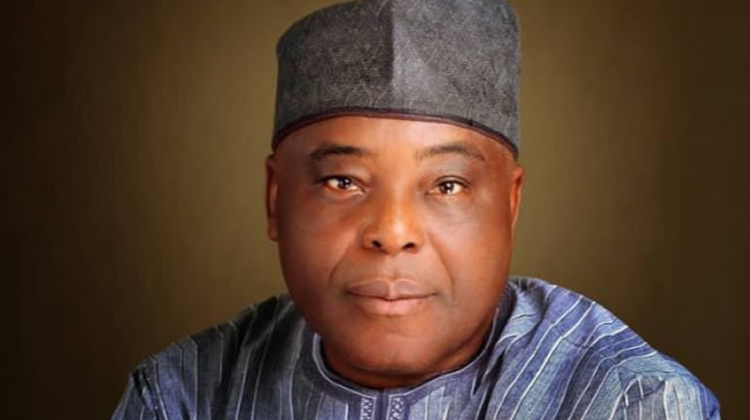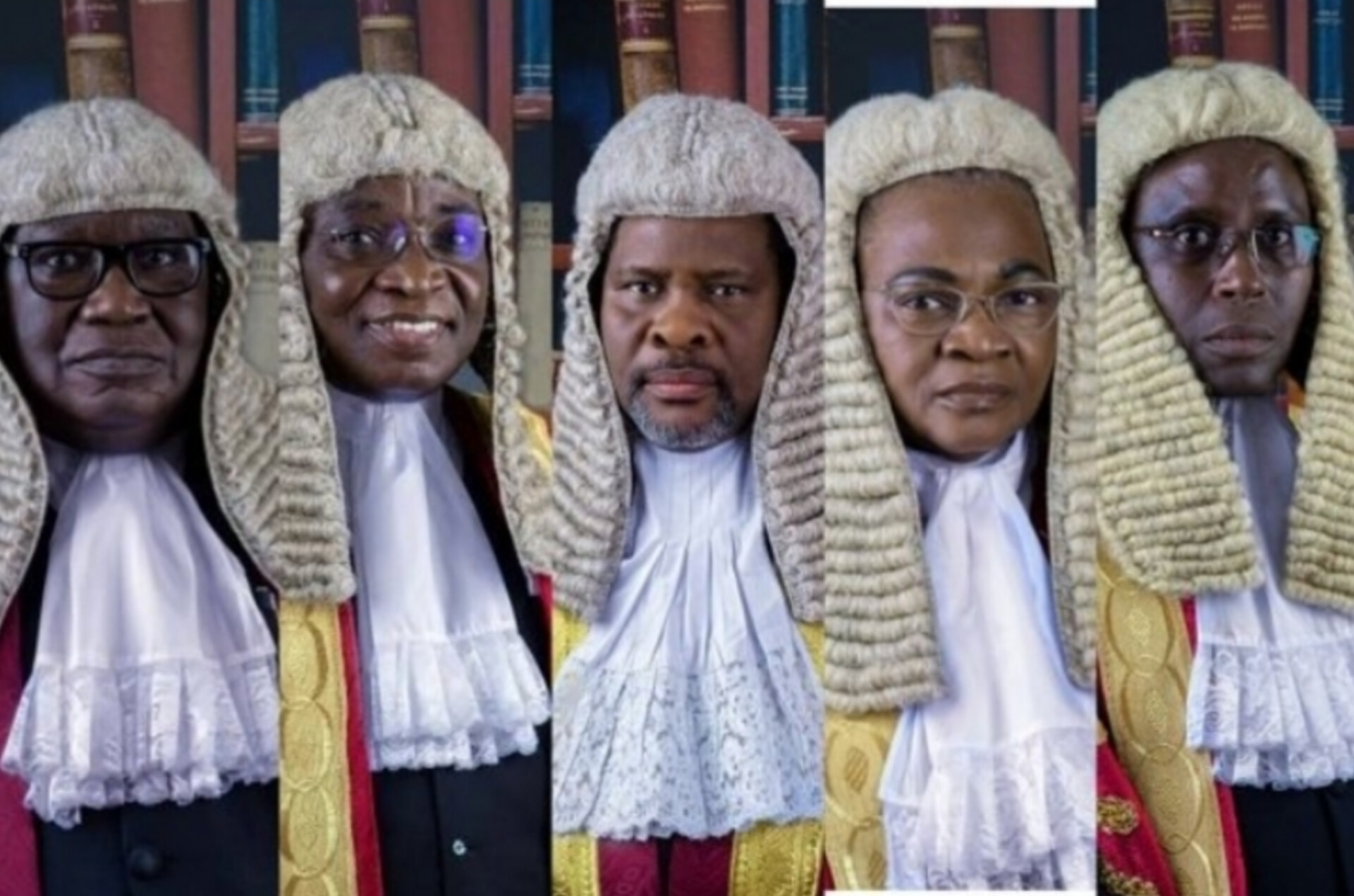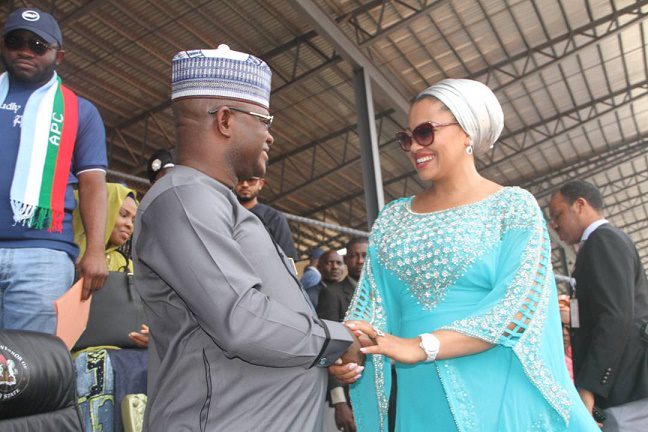By
Prof Mike Ozekhome SAN, CON, OFR, FCIArb, LL.M, Ph.D, LL.D, D.Litt.
I am a very sad man as I write this. I have been completely devastated by the ugly and rather sudden death of my elder brother, friend, kinsman, soul mate, client and confidant – HIGH CHIEF RAYMOND ANTHONY ALEOGHO AYAOGHENA DOKPESI, Ph.D, OFR, D.Sc. I have cried myself hoarse. I have never stopped crying. Sludge of tears. Sunken eyes. Bleeding heart. Weak limbs.
I am particularly traumatized because Dr. Dokpesi had called me on WHATSAPP at about 12:55am in the MORNING of 29th May, 2023; the very day he died. He had called me, as always, to discuss friendship, brotherhood and take advice on sundry legal matters. He exuded his usual self-happiness, vibrancy, sheer éclat and gusto. This, notwithstanding that he had had some health challenges for some time. He had miraculously recovered fully from a stroke. It was in keeping with his physiotherapist’s professional advice of exercise on a treadmill that he tripped and fell on a fast-rolling treadmill. So, the man died. The gigantic iroko fell. The world has been mourning ever since then. When Raymond called me that early fateful morning of 29th May, 2023, his voice was quite rich, steady and filled with laughter, even guffaw. We taunted and bantered with each other, as we usually did whenever we encountered each other, whether physically on the phone. We exchanged chats and spoke up to 1:50am that fateful day. So, when Chief Tony Akiotu (GMD, DAAR Communications) and Senator Francis Alimhikhena, called me to break the sad news of his sudden death from the very hospital to which he was said to have been rushed, I could not believe my ears. It was simply incredible.

It took another communication from his first son, Raymond Dokpesi, Jnr, to shake me from my state of reverie and melt my lethargic world of disbelief or incredulity. Was Dokpesi actually dead? Was the Ezomo of Weppa Wanno Kingdom’s call to me and our discussion up to 1:50am a final FAREWELL from him? Did he have the premonition of his imminent death? I do not know. Gosh!!! One thing is crystal clear to me as I grieve: Agenebode, Weppa- Wanno, Etsako, Afenmailand, Edo State, Nigeria, Africa, the black race, and indeed the whole world, have lost an unforgettable and uncommon shining star and rare gem of inestimable value.
At a mere 71, the Gbobaniyi of Ilawe-Ekiti lived a life of nobility; a life wholly dedicated to the service of God and humanity. His was simply a case of vini, vidi, vici (he came; he saw; he conquered). He impacted the most vulnerable Frantz Fanon’s “Wretched of the Earth” and the hoipolloi, through his many philanthropic and charitable works. In the maritime world, Dokpesi stood tall and resplendent, earning a first class in his Bachelors and Masters, and finally a Ph.D in Maritime Engineering. He helped to design the first carbotage laws of Nigeria. He floated the first indigenous shipping line in Nigeria (“the African Ocean Shipping Line”). He later followed it up with BALDOK Shipping Line. He was to become the nullus secondus of the media world, where he became a Czar, the Ted Turner of African broadcasting. Dokpesi indeed pioneered and blazed private independent broadcasting of television and radio in Nigeria and Africa, establishing Raypower 100.5 FM Radio and the African Independent Television (AIT). AIT (“sharing the African Experience”). The AIT was set up principally to change the western world’s skewed narrative about Africa. Its thematic philosophy was geared towards the promotion of African values, culture and traditions of the black race across the world. By 1999, DAAR launched Nigeria into the Information Super Highway with the DAAR broadband internet services. It was unheard of at that time that a single individual could challenge and break decades of government’s dominance and monopoly of information through radio and television. But, the Araba of Oshoroland and Oghierumhoa of Weppa Wanno Kingdom did just that. A very intelligent, versatile and resourceful person, Dokpesi was at once a deep thinker, philosopher, scientist, artist, dancer, singer, as much as he was a Marine Engineer, humanist, iconoclast and pathfinder. The Otunba Akorede of the Source, Ile-Ife, was not only a cultural Ambassador of his people (a traditional chief across all the geo-political divides of Nigeria), he was also a discoverer and adventurist who blazed many trails, broke new grounds and opened up new vistas and horizons for society to flourish. He simply made possible, things that appeared ordinarily impossible. As a workaholic, painstaking technocrat and a human capital builder, the Ezomo had an eye for minute details. He crossed the “t” and dotted the “i”. He did not suffer fools gladly; even as he was patient enough to excuse sheer ignorance and genuine innocent mistakes. He was simply many things rolled into one. Dokpesi was a Jack of all trades and master of all. He was a rolling stone that gathered moss.
Wearing humility like a second skin, the Lintu Bachama (Adamawa State) was an oxymoron. He was shy, reticent and taciturn; yet simultaneously gregarious, luminous and incandescent. In the business world, Dokpesi was a shrewd businessman and calculating entrepreneur. He had the Midas touch. He turned a small DAAR of 1996 into an octopaedal conglomerate that went public into the capital market in 2007. He was a total man who believed and defended the convictions of his belief even if he stood alone. He did not hug limelight or populism, or play to the gallery. At his 70th birthday, he sat on the 8th row at the celebration hall. He spurned all my attempts to get him to the front seat. He said he did not need it. I could not understand. But, that was Dokpesi for you.
His every day activities were anchored on the platforms of equity, social justice, fairness, egalitarianism and mutual respect for all religions and ethnic groups. He put the female gender first and forward in climes beyond Nigeria. Was this why he married many wives from many races and ethnic groups? I do not know. Or, do you? To say the Oghierumhoa and Ezomo of Weppa Wanno Kingdom was bold, courageous, daring and hardworking is for want of stronger grammatical expressions. His unquantifiable sacrifices globally and across all divides in Nigeria and Africa, made it extremely difficult for anyone to truly describe his essence and personae. Many saw him as a philanthropist extraordinaire; a Pan-Africanist and a Pan-Nigerian, who believed everyone was entitled to be heard and to air his opinions. Others saw him as an unrepentant investor in human beings. Some others regarded him as an unusual political strategist and tactician, who was consistent throughout his political odyssey and stayed put with his PDP, from its nascent scratch till he breathed his last. Yet, some others swore that the Ozoigbondu I of Adu Achi, Enugu State, was a media mogul; the Ted Turner of Africa. He was the undoubted cultivator of the then nascent Nollywood, Comedy and Music industries, where he discovered and nurtured today’s superstars, giving them the necessary platform to rise and achieve their potentials. Yet, others would be right to insist that he was simply a passionately prayerful, devout and devoted Christian of the Catholic Faith, who threw his AIT open for daily mass and other church services for more than a decade before he died. Even at that, he did not discriminate against Islam, as he introduced Jumat services every week. Some people had therefore called him a Chrislem”. The widows cried on his broad shoulders. The orphans leaned on his massive frame. The youths tapped from his generosity and mentorship. The senior citizens depended on him. He gave voice to the voiceless. He energized the weak, helpless and most vulnerable. He gave succour to the deprived and forgotten.
The Zuoje of Liberia was even described by some as an amoeba – a shapeless, formless, unicellular organism that could easily change its shape. Yet, others believed he was an octopus – an eight-limbed, soft-bodied mollusc with bulbous head. These descriptions are all apt because they depended on how he was perceived or seen by different people. The descriptions simply depended on the person or institution involved. They were all right; yet, oxymoronically, all wrong. This is because no one could give a wholistic and complete description of the enigmatic Sardaunna of Kpaduma, Abuja. Dokpesi truly showed that a candle does not lose its flame by lighting other candles.
The name of the Oganigwe Umu Orji Ako Nibo, Anambra State vibrated and reverberated for decades in Nigeria’s political firmament. He epitomized the soul and spirit of DAAR. Not many Nigerians know that DAAR is actually a reversed acronym of his name – RAYMOND ANTHONY ALEOGHO DOKPESI (RAAD); thus DAAR. The Osese of South Uneme, Edo State came; he saw; he conquered (vini; vidi; vici). He ran a very good race. He finished well. Most significantly, he died on Nigeria’s hitherto DEMOCRACY DAY- May 29, 2023 (before it was changed to June 12). Because he epitomized DEMOCRACY and democratic practices. At the 2005 National Political Conference, the Vision 2009 and the 2014 National Conference, Dokpesi rolled out the entire DAAR Communications facilities and outfit to drive the conferences, becoming the very linchpin, the backbone and anchor of the entire talkshops. He was everywhere, spreading industry, efficiency and efficacy. He was simply a one-man riot squad. He passionately believed in and propagated a restructured Nigeria where true fiscal federalism thrives, as against the present unitary system we practise. O death, where is thy sting? Death, you shall also die. You just died because you could stop Dokpesi from transmuting from terrestrial mortality to celestial immortality. So, the Ezomo defeated you.
May God grant this legend and colossus eternal repose of his great soul until we meet to part no more. Itseee, Itseee lagi Itseee. May God grant his immediate and extended family, his friends, associates, admirers and loved ones the fortitude to bear this irreparable and irreplaceable loss. Amen. Adieu Ezomo. Farewell Iyokpamhe. Goodbye, Agene 1. Rest in perfect peace till we meet on resurrection day to part no more. Amen; amen; and amen.





Excellent content. You’ve made some excellent observations.
Looking forward to more